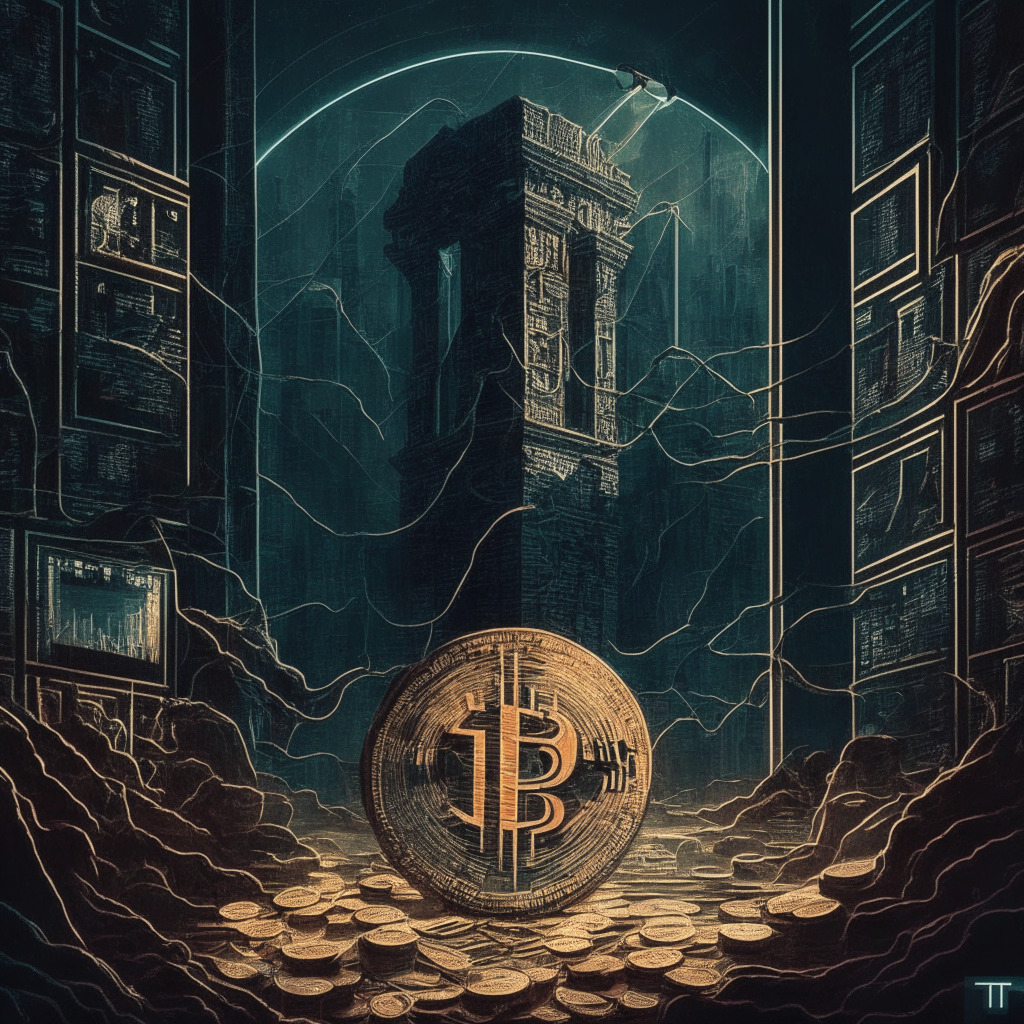The U.S. Securities and Exchange Commission (SEC) appears to be expanding its enforcement crackdown, potentially targeting decentralized finance (DeFi) and stablecoins, according to a research report published by Berenberg and covered by CoinDesk. Among the possible targets, the two largest stablecoins by market cap, Tether (USDT) and USD Coin (USDC), are considered. These assets collectively account for $110 billion in value and are essential to the DeFi ecosystem.
Stablecoins are blockchain tokens whose value is pegged to relatively stable assets, such as fiat currency. The majority of them are backed by a combination of cash and short-term U.S. Treasury bills. By focusing on USDC and USDT, the SEC could target the core of DeFi, as Berenberg’s analysts led by Mark Palmer noted in the report. This strategy could be part of the SEC’s aim to weaken DeFi’s capacity to serve as a viable alternative to regulated exchanges and lenders.
In recent months, there have been increasing concerns about DeFi’s risks to national security due to the industry’s lack of appropriate sanctions and money laundering controls. The US Treasury Department published a report in early April highlighting the threats posed by ransomware actors, thieves, scammers, and drug traffickers using DeFi services to transfer and launder their illicit proceeds.
Subsequently, the SEC reopened a comment period on a proposal to modify the definition of “exchange” under existing laws so that DeFi can be governed by traditional finance rules. The SEC chairman, Gary Gensler, emphasized that investors in the crypto market must receive the same level of protection as those in other financial markets.
Interestingly, the report also suggested that an attack on USDC might have implications for Coinbase, America’s largest centralized cryptocurrency exchange. In Q1 2023, Coinbase generated around 27% of its net revenue ($199 million) through its USDC reserves. This occurs while the SEC sues Coinbase for numerous securities law violations, despite the company maintaining that USDC is not a security.
A similar lawsuit against Binance singled out their stablecoin BUSD, claiming it to be a security. BUSD, issued by Paxos, is the third-largest stablecoin and operates similar to USDC.
MicroStrategy executive chairman Michael Saylor expressed concerns about stablecoins, telling Bloomberg that there might be “no legitimate path forward” in the United States for non-Bitcoin cryptos. Berenberg’s report concurred, stating that MicroStrategy, which owns approximately 140,000 Bitcoin (BTC), is well-positioned to outperform the market and that the crypto landscape overall will likely become more Bitcoin-focused going forward.
Source: Cryptonews




